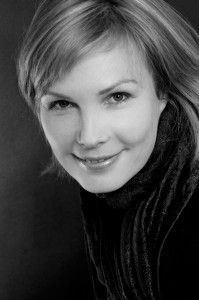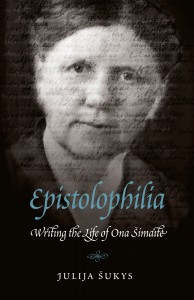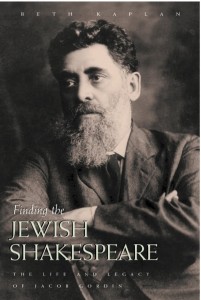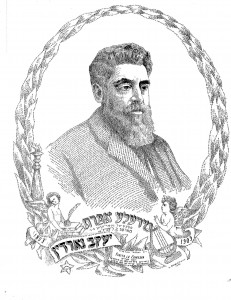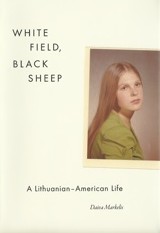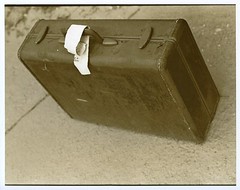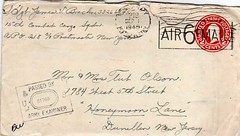Thanks to the Canadian Jewish News and Ania Bessonov for this careful reading of my new book, Siberian Exile.
Siberian Exile: Blood, War, and a Granddaughter’s Reckoning
NOW AVAILABLE!
“Interweaving coincidences and reversals with historical precision in a narrative that layers, folds, zags and spikes, Julija Šukys wanders the ghost-filled streets of the present, mingling with kin, real and imagined, and corresponding with multiple unspeakable pasts. I can’t recall the last time I read so gripping and so delicate a documentary of atrocity, complicity, dispossession and survival. Siberian Exile is remarkable, daunting, and disarmingly real.” — Mary Cappello, author of Life Breaks In: A Mood Almanack
“All families harbor secrets. What if, in blithe innocence, you set out to research your family history, only to discover that your grandfather was guilty of the most heinous of crimes? Šukys pursues her tragic family memoir with courage and self-examination, often propelled to her painful discoveries by what she believes is a bizarre synchronicity. This is not a book written at a safe distance.”—Rosemary Sullivan, author of Stalin’s Daughter: The Extraordinary and Tumultuous Life of Svetlana Alliluyeva
“Riveting. . . . Beyond the historical and familial narrative, Julija Šukys ponders her own exile and her own complicity, allowing readers to do the same, comparing versions of selves and asking which version is truest, an impossible question, but one readers will find as enthralling as these pages.”—Patrick Madden, author of Sublime Physick and Quotidiana
BUY Siberian Exile at the University of Nebraska Press.
BUY Siberian Exile at IndieBound.
About the Book
When Julija Šukys was a child, her paternal grandfather, Anthony, rarely smiled, and her grandmother, Ona, spoke only in her native Lithuanian. But they still taught Šukys her family’s story: that of a proud people forced from their homeland when the soldiers came. In mid-June 1941, three Red Army soldiers arrested Ona, forced her onto a cattle car, and sent her east to Siberia, where she spent seventeen years separated from her children and husband, working on a collective farm. The family story maintained that it was all a mistake. Anthony, whose name was on Stalin’s list of enemies of the people, was accused of being a known and decorated anti-Bolshevik and Lithuanian nationalist.
Some seventy years after these events, Šukys sat down to write about her grandparents and their survival of a twenty-five-year forced separation and subsequent reunion. Piecing the story together from letters, oral histories, audio recordings, and KGB documents, her research soon revealed a Holocaust-era secret—a family connection to the killing of seven hundred Jews in a small Lithuanian border town. According to KGB documents, the man in charge when those massacres took place was Anthony, Ona’s husband.
In Siberian Exile Šukys weaves together the two narratives: the story of Ona, noble exile and innocent victim, and that of Anthony, accused war criminal. She examines the stories that communities tell themselves and considers what happens when the stories we’ve been told all our lives suddenly and irrevocably change, and how forgiveness or grace operate across generations and across the barriers of life and death.
BUY Siberian Exile at the University of Nebraska Press.
Author Interview in Foreword Reviews this Week
Here’s an interview I did with ForeWord Reviews, a great publication that focuses on books published by independent presses. You can access the original here (scroll down to the bottom of the page):
Conversational interviews with great writers who have earned a review in ForeWord Reviews. Our editorial mission is to continuously increase attention to the versatile achievements of independent publishers and their authors for our readership.
Julija Šukys
Photo by Genevieve Goyette
This week we feature Julija Šukys, author of Epistolophilia.
978-0-8032-3632-5 / University of Nebraska Press / Biography / Softcover / $24.95 / 240pp
When did you start reading as a child?
I learned to read in Lithuanian Saturday school (Lithuanian was the language my family spoke at home). I must have been around five when, during a long car trip from Toronto to Ottawa to visit my maternal grandparents, I started deciphering billboards. By the time we’d arrived in Ottawa, I’d figured out how to transfer the skills I’d learned in one language to another, and could read my brother’s English-language books.
What were your favorite books when you were a child?
E. B. White’s Charlotte’s Web and Roald Dahl’s Charlie and the Chocolate Factory come immediately to mind. These are books that I read and reread.
What have you been reading, and what are you reading now?
I recently finished Mira Bartok’s memoir The Memory Palace, which I found really extraordinary. I’m now reading Nicholas Rinaldi’s novel The Jukebox Queen of Malta, which was recommended by the writer Louise DeSalvo. My husband, son, and I are nearing the end of an eight-month sabbatical on the island of Gozo, Malta’s sister island, so I’m trying to learn more about this weird and wonderful place before we head home to Montreal.
Who are your top five authors?
WG Sebald: To me, his books are a model of the possibilities of nonfiction. They’re smart, poetic, restrained, and melancholy.
Virginia Woolf: I (re)discovered her late in life, soon after the birth of my son, when I was really struggling to find a way back to my writing. She spoke to me in ways I hadn’t anticipated.
Marcel Proust: I read In Search of Lost Time as a graduate student, and the experience marked me profoundly. This is a book that doesn’t simply examine memory, but enacts and leads its reader through a process of forgetting and remembering.
Assia Djebar: I wrote my doctoral dissertation, in part, on Assia Djebar, an Algerian author who writes in French. Her writing about women warriors, invisible women, and the internal lives of women has strongly influenced me. Djebar, in a sense, gave me permission to do the kind of work I do now, writing unknown female life stories.
Louise DeSalvo: I discovered De Salvo’s work after the birth of my son when I was looking for models of women who were both mothers and writers. DeSalvo is a memoirist who mines her life relentlessly and seemingly fearlessly. She’s a model not only in her writing, but in the way she mentors and engages with other writers.
What book changed your life?
There are two. Virginia Woolf’s A Room of One’s Own and her collection Women and Writing, especially the essay “Professions for Women.” I read these at the age of thirty-six when my son was approaching his second birthday. My work on Epistolophilia had stalled, and I was exhausted. I was trying to create conditions that would make writing possible again, but I was struggling with some of the messages the outside world was sending me (that, for example, it was selfish of me to put my son in daycare so that I could write; or now that I’d had a baby, my life as a woman had finally begun, and I could stop pretending to be a writer).
I remember feeling stunned by how relevant Woolf’s words remained more than eighty years after she’d written them. What changed my life was her prescription (in “Professions for Women”) to kill the Angel in the House. Before reading this, I’d already begun the process of killing my own Angel, but Woolf solidified my resolve. There’s no doubt that she is in part responsible for the fact that I finished Epistolophilia and that I continue to write.
Continue reading “Author Interview in Foreword Reviews this Week”
CNF Conversations: An Interview with Beth Kaplan (Part I)
*
In this revelatory biography, Beth Kaplan sets out to explore the true character and creative achievements of her great-grandfather Jacob Gordin, playwright extraordinaire and icon of the Yiddish stage.
Born of an Anglican mother and a Jewish father who disdained religion, Kaplan knew little of her Judaic roots and less about her famed great-grandfather until beginning her research, more than twenty years ago. Shedding new light on Gordin and his world, Kaplan describes the commune he founded and led in Russia, his meteoric rise among Jewish New York’s literati, the birth of such masterworks as Mirele Efros and The Jewish King Lear, and his seething feud with Abraham Cahan, powerful editor of the Daily Forward. Writing in a graceful and engaging style, she recaptures the Golden Age and colourful actors of Yiddish Theater from 1891 to 1910. Most significantly she discovers the emotional truth about the man himself, a tireless reformer who left a vital legacy to the theater and Jewish life worldwide.
Beth Kaplan is a writer and actress in Canada. She has taught memoir writing at Ryerson University for sixteen years and at the University of Toronto for five. Her essays have appeared in the Globe and Mail and other newspapers and magazines. Visit Beth Kaplan’s website at www.BethKaplan.ca.
Julija Šukys: In your bio in the opening pages of the book, we read that you spent twenty years raising children and writing this book – “they both left home together.” My writing became entangled with and inextricable from my private life once my son was born four years ago. In light of the connection you draw between your kids and the process of writing, I’m interested to know more about the relation between them.
Beth Kaplan: I had my first child in Vancouver when I was nearly 31. I’d been working as an actress in Vancouver for eight years; when I got pregnant, I left the stage and registered to take an MFA in Creative Writing at UBC. So it was as if pregnancy gave me permission to finally sit down and write.
And then the birth of my daughter took that permission away – or at least, made the process difficult. I adored being a mother and didn’t know how to focus on anything else. I’d take the baby to a YMCA daycare for a few hours every few days, so that I could write – but often instead I’d grocery shop or sleep or read the newspaper, things I couldn’t do when she was around. And I felt alone. Almost none of my friends in the theatre or at UBC had kids, and I didn’t know, or even know of, any mother writers.
Someone said once that of the 3 things of vital importance to a married woman – husband, children, work – she could only successfully have two of the three. I thought about Virginia Woolf with husband and work, Margaret Laurence with children and work, L. M. Montgomery with all 3 and a wretched life. There were very few examples of a writer with all 3 successfully. Later I discovered Carol Shields as one very good example, and there are now lots. But around me in the eighties, there were few.
I wrestled with that constantly. I managed to finish the degree long-distance – we moved to Ottawa for my husband’s work in 1983 where I had my son, and then to Toronto in 1985, where I finished my thesis on my great-grandfather and decided to keep going with research and to write a book. When my kids were 6 and 9, my husband and I separated, he moved shortly after that to the States, and so I was a single mother with financial support from him but 100% custody of two difficult children and an old, disintegrating house, in a city where I had no work connections and no family.
The result – the book wasn’t published until 2007. I don’t blame that solely on being a single mother. I also completely lost confidence in myself, was isolated with no support group, had no idea what I was doing – in academic research, there are methods, I just didn’t know what they were. I compared the book to an octopus with its tentacles around my neck – the minute I pried one away, another had me in its grip. And that’s just the writing, let alone getting the thing published. It’s a miracle it ever appeared, in fact.
So this is a very long answer to your question, which is – that I came too late to understand something I call beneficial selfishness. I think writers, artists, have to be selfish sometimes, even with their children. That is, not selfish to the point that their needs are neglected. But selfish in asking them to recognize that their mother has important work that requires something of them. Writing is so invisible. If I were playing the cello or painting, they could hear or see that. But they could see nothing of my work. That was hard for me too, as most of the time, I didn’t believe either, with very little published, that I was a writer.
What helped was writing essays for the CBC and newspapers and for “Facts and Arguments” in the Globe and Mail – I published a lot of short term things that got me out there, got my name in print and showed the world, and me, that I was a writer. Incidentally, many of my essays were about my kids. They grew up being chronicled on the back page of the Globe – always with veto power, of course. But they liked it.
25 years later, I’m still in the same house; the kids live on the other side of town and their rooms here are rented out to help pay the mortgage. I teach but have lots of time, lots of quiet for writing, which is heaven. Except that my daughter has just told me she’s pregnant. Omigod, I’m going to be a grandmother. I can’t wait. But this time, I’ll be able to cuddle and hug and read stories, and then give the baby back and get on with my work.
The fact is that unless you have a spouse who can take over, which I did not, young kids do and must come first, especially when they’re very young (and again when they’re teens but that’s another story.) But that doesn’t mean shelving the work. It means being creative with finding time, and it means taking it and yourself seriously enough to be selfish, sometimes. Otherwise, the work is constantly last, and the book takes 25 years to emerge.
Finding the Jewish Shakespeare constitutes a kind of textual archaeology. It tells the story of your great-grandfather, Jacob Gordin, a Yiddish playwright once compared to Shakespeare and Ibsen, now largely relegated to oblivion. Tell me about the impetus to embark on such a journey, and the research path down which it took you.
I needed to choose a thesis subject for my MFA, and it was my husband who said, You have a great man in your family, write about him. Once he’d said it, of course, I knew that was exactly what I wanted to do. Because there was the mystery I’d grown up with – why did my father and other relatives have such disdain for a man who’d been in his time so revered? So I blithely began, without realizing that almost all my research materials were in New York City– this was 1982, the Dark Ages before Google, so research meant writing letters, making phone calls, and getting on airplanes. The first time I flew from Vancouver to New York for research in 1983, the thrill of arriving at the YIVO Center for Jewish Research on 5th Avenue, asking for their materials about Gordin, and watching the cart rumble up to my desk with all those file boxes. Then opening them eagerly, and finding that nearly everything was in Yiddish or in archaic Russian – the next tiny hurdle, as I spoke and read neither.
I was lucky enough to find a woman who translated from the Yiddish for me for 25 years. So it’s really our book, Sarah Torchinsky’s and mine.
I wrote lots of letters of enquiry, discovered family members to interview – several of them just in time, as they were extremely old already when I found them – and read everything I could find on or around the subject. I didn’t start using a computer for writing until 1987 or so. And Google, of course, much after that. It seems unbelievable now, how much time research took. And several people have pointed out that in the Internet age, we lose the thrill of hunting and holding the actual artifacts and books.
As I read your book, I found myself continually pondering questions of language. Interestingly, Jacob Gordin’s strongest language, and the language he appears to have loved best, was Russian. Yet, he wrote his plays in Yiddish, a language that always represented a bit of a struggle to him. It’s not the language he used in private: with his wife he spoke Russian, and to his children, English (a language it appears he never mastered). Why, once he had gained some success, do you believe that Gordin never made the switch to Russian? Why did he continue to write in Yiddish, despite the limited audiences, the community politics that you describe, and despite the fact that it was not the language in which he planned his plays?
Gordin didn’t switch to Russian because nobody on the Lower East Side ever wanted to hear Russian again; he would have had no audience at all. Yiddish was the language of mothers, of home, hence not only of the theatres but of the burgeoning Yiddish newspapers. Russian was the tongue of the oppressor, the Cossack enemy, there was no place for it amongst the Jews in America. But Gordin always dreamed of going back to Russia one day. Before he died, he knew that his plays were touring Russia – one of his sisters, who still lived there, wrote to him from her town in Ukraine of her pride in going to the theatre to see two of her brother’s plays. But she saw them in Yiddish, not in Russian. There were Yiddish theatres and troupes performing Gordin’s plays in South America and in Eastern Europe – in fact, all over the world.
This is Part I of a two-part interview. Click here to read Part II.
[Images: Courtesy of Beth Kaplan]
CNF Conversations: An Interview with Beth Kaplan (Part II)
*
Julija Šukys: My second question about language is about your relationship to the various tongues at work in this book. What is your relationship to Yiddish and Russian, the languages of your ancestor? Given the decline of Yiddish since World War II, there’s a real sense of loss that surrounds that language these days. Does this sense of loss come into play in your relationship to Gordin’s texts and history at all?
Beth Kaplan: Well, this is a very profound question because it also goes to the heart of my hybrid status – as a half-Jew delving into this very Jewish story. Several people, hearing of my work, told me I should learn Yiddish first. A Yiddish academic, who continued to be extraordinarily unhelpful, told me when I called to introduce myself at the beginning that writing a book about Gordin without speaking Yiddish was like writing about Moliere without learning French. As if my family connection were meaningless.
I had no interest in learning Yiddish, though I did take a term of Yiddish classes through the Toronto school board, where my suspicions were confirmed – the class was filled with people wanting to reconnect with memories of their childhoods, especially of their grandparents. I had no such desire. In fact, my grandmother, Gordin’s daughter, spoke no Yiddish and had no interest in it. That’s the irony at the core of all this, as you noted – Gordin, revered as a Yiddish playwright, spoke Russian or English at home and hadn’t much respect for the language of his great success. I did take Russian lessons, incidentally, which interested me much more because it’s the language of a country I could actually go and visit.
So it was thanks to my dear Sarah Torchinsky that the Yiddish documents revealed their secrets to me. My father, whose relationship with his own Jewishness was conflicted, as I point out in the book, loved Yiddish phrases and expressions and used them often, but he would have been horrified at the thought of actually learning to speak the language. Intellectuals like him thought of Yiddish, not as a vibrant language in its own right, but as a kind of hybrid, debased German.
I respect and admire those trying to keep Yiddish alive, especially the amazing Aaron Lansky of the National Yiddish Book Centre in Amherst. Right now, I am corresponding with a woman living in rural Texas, who speaks Yiddish in complete isolation and is translating one of Gordin’s plays. But the future of the Yiddish language is simply not my cause.
Although your portrait of Gordin is nuanced (you don’t hold him up as the best playwright who ever lived, nor do you sugarcoat difficult aspects of his personality like his ego), the book nevertheless reads as a project of rehabilitation. Gordin’s legacy has suffered terribly from a vicious campaign waged by the New York Yiddish literary critic, Abraham Cahan. Talk a little bit about the conflict between Gordin and Cahan. How much did you know about it when you began researching? What, in your opinion, lay at the heart of Cahan’s fervour in destroying his rival so thoroughly?
Abraham Cahan was a critic at the Jewish Daily Forward. The more I learned about his vindictive personality and especially his campaign against my ancestor, the more I felt that if nothing else, this book would defend Gordin and expose what he endured. I learned that Cahan pursued several other vicious vendettas, one against the writer Sholem Asch even more single-mindedly destructive than the one against Gordin.
I posit in my book that there was something about Gordin’s largesse, huge family (eleven children) and enormous popularity that goaded Cahan, who was the opposite in nature, an anti-social man with very few friends, no children and an unhappy marriage, who lived not in a home but in a hotel. So the surface of their battle may have been political – they disagreed vehemently on how Jews should be helped to adapt to their new land – but I think with a burning personal base.
When I found some of Cahan’s articles against Gordin and had them translated by Sarah, they broke my heart – they were so petty and cruel. Not without an occasional point, certainly – but far, far beyond the boundaries of criticism. They attacked everything about Gordin with a kind of nasty glee with made me, literally, feel ill.
You describe finding a number of Cahan’s assessments of Gordin’s work almost verbatim in current descriptions of his work, namely that his plays have little literary merit. To me (and I think to you), it is this question of tainted legacy (that of Gordin as a hack, and even, as you describe, of a plagiarist) that is the greatest tragedy of this story. What does Gordin’s story tell us about the capricious nature of literary legacy, or of how writers are made and destroyed?
I made a lot of the tragedy of Gordin’s humiliation by Cahan, because I did come to feel that Cahan had left an accusatory legacy of plagiarism that my father absorbed. But in the end, I have to point out that many people did remember and respect Gordin – that Cahan’s campaign wasn’t completely successful. After all, a quarter of a million people, apparently, packed the streets the day of his funeral. I think that Gordin was more a newspaperman or a teacher than a playwright, in that he was so didactic, always preaching his message. But an elderly Yiddish actor I spoke with from Britain told me his plays were spectacular vehicles for actors. I had to keep in mind how much the theatre itself has changed; that many of the most successful playwrights of a particular time vanish pretty quickly. Our list of great playwrights of other times is much smaller than the list simply of great writers; it’s hard to write a play that is relevant to its time but will also endure. Gordin was a marvel for his time and place, bringing theatre with dignity and finesse to a people who’d had no theatre at all only decades before and who only knew a kind of vaudeville of melodramas and operettas. He accomplished a great deal, but he was no Ibsen.
Most of my own contact with the Yiddish literary scene has been through my research on Vilna. I was amazed to learn of the vibrant Yiddish scene that Gordin was a part of New York at the turn of the century. Do you see echoes of that theatrical and, in some ways, revolutionary world? Or is it really gone for good?
I describe in the book the scene in the 1800s in New York, when factions supporting rival actors playing Macbeth began to fight each other in the streets, resulting in a number of deaths. If only audiences cared so much today about the theatre! But today when people are sitting at home in front of a thousand different screens, we can’t reproduce that time, when sitting in a theatre meant so much, gave people a taste of home, let them hear their past, their homeland… It was an incredibly vibrant time, when New York was flooded with immigrants, desperate to learn and prosper. In a startlingly short time, many of them did.
This is a book not only about your great-grandfather, but also about your extended family, and about you. It’s about your hybrid identity (half-gentile, half-Jewish). It’s about the family silence surrounding the one great, but somehow shameful family member. It’s about the discovery of roots, and the drawing of a line back to the other writer in the clan. How important to this story is the fact that you are Gordin’s great-granddaughter? Talk a little about the decision to write a book that was a work of creative nonfiction, infused with the writerly gaze and experience, rather than a “straight” biography.
I had a big technical problem writing the book, which was never really resolved – that it was, in fact, two books. The first was the scholarly Gordin biography that was needed because there wasn’t one – detailing the history of the man and his plays. The other book, the one that really interested me, was the family story and my connection to him and to his life. I got trapped in the biography, loaded down with facts and names and dates, and then did my best to bring life to all that with the personal stories.
The problem was that the resulting manuscript was too weighty and scholarly for the mainstream publishers, where my New York agent first sent the book, and too personal and informal for the university presses, which wanted a dry biography with footnotes and no personal material. Footnotes! I’d been doing research for over 20 years, most of them as a single mother in chaos, I had paper stuffed into boxes all over my house with no idea where I’d found this quote or that bit of play, and no desire to spend years digging it all back up. I said no footnotes, which meant most university presses were not interested.
Luckily, Syracuse was happy to take the manuscript and turned out a beautiful book, though I had to cut some of the personal stuff. If I had to do it again, I might try to actually do two books – one for the university Yiddish departments, with just cold facts, and another with far fewer facts but more heart and soul about the family.
A wealthy friend of mine, after reading the book, said, “Too much detail. Why didn’t you turn it into fiction? That would have been more fun and would have sold much better.” That may be true. But I have not the remotest interest in taking a fabulously interesting true story and fictionalizing it, inventing characters and situations when I’d hunted for decades to uncover the real ones. My friend Wayson Choy has written two novels and two memoirs; I admire that kind of ambidextrousness, switching between fiction and faction. I have no interest in even trying. Give me a true story, any day.
[Image: Courtesy of Beth Kaplan]
America — Siberia
I’ve officially used up everything I know, so I’ve returned to reading. Today, I spent my morning hopping back and forth between an excruciating memoir of Siberian deportation and a novel about emigration. When the former became too painful to read, I switched to the other, then back again.
The former is an amazing story. A girl of fourteen was deported with her mother and brother to a settlement in the Russian Arctic. There were no trees and no shelter when the deportees arrived. They slept under fishing boats and in tents made of American flour bags until a barge loaded with American supplies arrived.
A new theme is starting to emerge in my research that I hadn’t anticipated: America in Siberia. The deportees who travelled northward with the young memoirist were convinced that they were being transported to America. Where did they get this idea, which from our perspective now seems crazy? And this one group was not alone in its delusion: another band of exiles was so certain of its salvation that they threw their work clothes overboard, reasoning that these would be unnecessary in the American land of plenty. They perished shortly thereafter at the mouth of one of Siberia’s rivers.
In comparison to the hardships the people of these stories underwent, I realize that my grandmother was lucky. She lived not in a treeless permafrost region, but on arable and forested (if mosquito-infested) land. While climate maps show that the Arctic settlement only saw four months a year of above-freezing temperatures, my grandmother could expect seven. That fact alone probably doubled or tripled one’s chance of survival.
But she too told anecdotes about American products reaching Siberia. What is the significance of the crumbs of the free world — Stalin’s ally — reaching the frozen heartland of oppression, I wonder. What is the link between wartime America (whether in the form of delusions and dreams, flour-bag tents, or unaffordable canned goods) and Siberia?
It’s a connection I intend to explore.
[Photo: Lena River Delta in Siberia, aeroculus]
CNF Conversations: Daiva Markelis
Daiva Markelis, White Field, Black Sheep: A Lithuanian-American Life. University of Chicago Press, 2010.
*
Her parents never really explained what a D.P. was. Years later Daiva Markelis learned that “displaced person” was the designation bestowed upon European refugees like her mom and dad who fled communist Lithuania after the war. Growing up in the Chicago suburb of Cicero, though, Markelis had only heard the name T.P., since her folks pronounced the D as a T: “In first grade we had learned about the Plains Indians, who had lived in tent-like dwellings made of wood and buffalo skin called teepees. In my childish confusion, I thought that perhaps my parents weren’t Lithuanian at all, but Cherokee. I went around telling people that I was the child of teepees.” So begins this touching and affectionate memoir about growing up as a daughter of Lithuanian immigrants.
Markelis was raised during the 1960s and 1970s in a household where Lithuanian was the first language and where Lithuanian holidays were celebrated in traditional dress. White Field, Black Sheep derives much of its charm from this collision of old world and new: a tough but cultured generation that can’t quite understand the ways of America and a younger one weaned on Barbie dolls and The Brady Bunch, Hostess cupcakes and comic books, The Monkees and Captain Kangaroo. Throughout, Markelis recalls the amusing contortions of language and identity that underscored her childhood. She also humorously recollects the touchstones of her youth, from her First Communion to her first game of Twister. Ultimately, she revisits the troubles that surfaced in the wake of her assimilation into American culture: the constricting expectations of her family and community, her problems with alcoholism and depression, and her sometimes contentious but always loving relationship with her mother.
Deftly recreating the emotional world of adolescence, but overlaying it with the hard-won understanding of adulthood, White Field, Black Sheep is a poignant and moving memoir—a lively tale of this Lithuanian-American life.
Daiva Markelis is professor of English at Eastern Illinois University. Her writings have appeared before in the Chicago Tribune Magazine, Chicago Reader, and American Literary Review, among others.
Julija Šukys: Talk a little about how the writing this book. I, for one, heard you read a piece of it at a conference several years ago. How long did it take to write? What was your process? Did you write in fits and starts? Do you rewrite? How much input from others do you take in along the way?
Daiva Markelis: Seven years ago my mother died. Although she was almost eighty-five and had lived a long and interesting life, I mourned her loss deeply. I’d been writing essays and stories for years about growing up Lithuanian-American in Cicero, Illinois. I decided to take the material and add sections about my mother’s life and the year before her death. The process was quite therapeutic.
I wouldn’t say I write in fits and starts, but I do rearrange material quite a bit. Since I’m not very good at straight narrative, I like to organize sections in a mosaic-like way until a broader picture emerges. I rewrite a lot. I belong to a writing group of several university women who write fiction, memoir, and poetry. The group was instrumental in giving feedback as to what worked and what didn’t, especially in terms of structure. White Field would have been a very different book without their suggestions.
Your parents, both now deceased, are central to this memoir. How did their passing help or hinder the writing? Many writers wait until loved ones are gone to write about them (for fear of hurting the living, I suppose). Was this a factor in your case?
Good question. My mother was a big supporter of my writing—the book is dedicated to her memory. I suppose I still would have written the book if she had lived longer since she was a very open-minded woman with a good sense of humour. She would have enjoyed the book, I think, and would have been helpful in suggesting additions and revisions. My father was a writer himself; he wrote short stories and essays in Lithuanian, sometimes about quite sensitive topics. He was a complicated, interesting man who would have understood the importance of writing honestly and bravely, but I don’t know if he would have necessarily liked to read some of the things I wrote about him.
Another central figure in your book is the ‘character’ of Arvid Žygas (who later becomes Father Arvid Žygas, and eventually grows to be an influential figure in the Lithuanian community). Your descriptions of him are funny and poignant: this oddball, mischievous adolescent develops into a warm and caring adult, who remained one of your dearest friends. Recently, we all learned of his sudden death. This happened before I read your book, so as I read, I couldn’t help thinking how you had managed, without realizing, to build him a monument. And, in a way, it’s a more beautiful monument than perhaps you could make now, because it was built out of love and laughter rather than sorrow. Can you talk a bit about the death of your friend and if your book has taken on a new significance for you in light of his passing?
Arvid was a very good friend and an amazing person. The last time I talked to him was in August of 2010. It was a two-hour conversation—you couldn’t have just a chat with Arvid. He told me he was very worried about his health. Doctors had detected a brain tumor and were going to remove it. But even in the midst of this depressing talk, Arvid found a way to be both humorous and thought-provoking. He was afraid that doctors would take out the section of the brain that regulated empathy, and that he would become some kind of a moral monster. He called back a week later to say that he was going to be okay. Then I heard from friends in January that he was very sick and didn’t want people calling or contacting him. During that conversation in August he’d mentioned that he didn’t want to worry people or take up their time. I was greatly saddened and surprised by his death. I’m trying to write about it, but, you’re right, it’s a different experience, much harder and, of course, not really pleasurable. I’m glad I had the chance to write about the Arvid I knew as a girl and young woman without the spectre of his death hanging over me. Continue reading “CNF Conversations: Daiva Markelis”
The Right to Write, or Whose Story is This Anyway?
I’ve finally started writing my new book, Siberian Time, in earnest. It will tell the story of my grandmother’s 17-year exile to Siberia. Inevitably, too, it will tell stories about my family members: my father, his sisters, my cousins, my grandfather.
Because my chosen forms are the personal essay and creative nonfiction, I almost always appear in my work. Often too, there are traces of my husband and son, simply because they’re always around, and life with them colours everything I write and do. But until now, the prism of my life has been a tool for bringing someone else’s story into focus. My life, and that of my family, have never been at the centre of a project.
Until now.
So, I’ve just finished writing a lengthy essay about my 2010 trip to Siberia, when I travelled for four days by train across Russia to find the village where my grandmother was forcibly exiled. My cousin Darius came with me, and turned out to be the perfect companion. Before leaving, I warned him (with a laugh, but nevertheless deadly serious) that he would inevitably end up in my book, and he assured me that this was cool with him. Little did he suspect that my first piece of real writing stemming from our trip would be all about him.
For a long time I blamed the wound of my grandmother’s exile for the premature deaths of two of her three children. My father died suddenly of a heart attack when I was eighteen, and his sister (Darius’s mother) died of cancer about four years later. But only after returning from Siberia did I start really to wonder how my grandmother herself survived. Though it wasn’t so much about Siberia that I wondered, but Canada.
My grandmother arrived in this country in 1966, reuniting with her children after 24 years of separation. The six-year-old boy she’d left in Lithuania (my father) was balding, married and approaching middle age the next time she saw him.
The piece I’ve just finished asks the question: How do you survive when faced with incontrovertible evidence that life has passed you by? My answer: my cousin Darius. I explore the idea that he was her second chance.
My essay (currently titled “Trans-Siberia: Like Birds Returning Home”) narrates some painful memories that my cousin, who was in large part raised by our grandmother, shared with me on the train to Siberia. It also tells of our trip and of what we learned. Once I finished, I was pleased with my resulting text, but worried that I’d overstepped a line of privacy. The memories I used in my writing were not mine, and I felt I needed to ask permission before putting them out in the world.
So, I braced myself, and sent the text to Darius.
His response has been beyond encouraging. My cousin wisely counsels me to continue on, not to censor myself, and to be fearless. Nonetheless, I still feel a bit of uneasiness, and maybe that’s not so bad.
I recently reviewed Stephen Elliott’s memoir The Adderall Diaries. In it he states that he doesn’t seek approval from those he writes about. And though I absolutely understand why he wouldn’t, and don’t disapprove, I nonetheless continue to feel a responsibility to those whose memories I use. I’m not sure how much vetting I’m prepared to invite or allow as the book progresses. You can’t please everyone, true, but to what extent are we answerable to those whose lives intersect with what we write? For me, this remains an urgent question.
I’d love to hear about others’ experiences in this area. Have you written something using others’ memories or experiences? Did you allow for vetting or approval? Did you suffer a backlash? What is the biographer’s or memoirist’s responsibility to the lives she borrows for her work?
(NB: My essay is still a draft and destined for an anthology about exile. I’ve given it to a trusted friend for feedback, and will announce its appearance in print once that happens.)
[Photo: supercanard]
Life-blood: WG Sebald
WG Sebald, The Emigrants (New Directions, 1996 [English translation]).
And the last remnants memory destroys — Epigraph to Chapter One
I read this book over several months, putting it down then picking it up again weeks later. It’s a meandering and meditative text that gestures toward a point about memory, pain, and shame, rather than declaring it outright and obviously. Maybe my reading of it mirrored its style, wandering as I did. And even though I finished The Emigrants a while ago, I’ve had a hard time finding a way to sit down and write a quick account of it.
This is because Sebald’s work defies summary, genre, and the very categories of fiction and nonfiction.
I read Sebald, a longtime professor of literature and translation in Norwich, England, for the first time when I lived in Cincinnati some eight years ago. At the time, I was finishing up the writing of my first book, in which I’d been experimenting with various techniques in a nonfiction text, and I was fearful and uneasy about what I’d written.
It must have been my husband who bought Sebald’s Austerlitz: he’s always been more in tune with new veins in writing than I, but often has less patience for narrative, and tends to read prefer philosophy and criticism. So, even though Sean never finished Austerlitz, I gobbled it up. The book landed on my bedside table at exactly the right time, just when I needed someone to confirm that my own instincts on experimenting in nonfiction were valid. Sebald did that and more.
For me, Sebald was a revelation and a revolution.
The Emigrants, Sebald’s first book that appeared in English translation (he wrote in German), examines the lives of four individuals (Henry Selwyn, Paul Bereyter, Ambros Adelwarth, and Max Ferber) who, like the author (born in Germany in 1944), left their German or Germanized homes. In doing so, they, like their author, become strangers in the world.
The narrative’s characters are quirky and tragic, and through his interactions with them or their memories, and in his tracing of their paths through emigration, Sebald examines broader questions of foreignness and belonging, memory and shame, despair and adaptation, and of what remains of the old once a new home has been adopted.
World War II and the Holocaust return as constant themes in Sebald’s work. But while Austerlitz examines the Kindertransport, whereby many thousands of unaccompanied Jewish children were brought to England from Prague, and thus survived, the war and its horrors are a more oblique presence in The Emigrants.
There is the German-Jewish character of Max Ferber, that of Henry Selwyn whose roots lie in Lithuania, and the almost passing references to the dead who lost their lives in Nazi camps, but questions of Jewishness, of anti-Semitism, collaboration, or perpetration remain under the surface like an ache.
For the emigrants of his book, as for the author himself, home has become a problem and a memory. Permanently on the move, forever displaced, and no longer at ease anywhere (Sebald once said that his ideal post would be at a hotel in Switzerland), both the author and his characters embody rootlessness and restlessness.
Sebald started writing in his signature melancholy, calm voice late in life: only in his forties. And like so many greats, he was taken far too early. He died in 2001 in a car accident at the age of 57.
If you don’t know his work, I highly recommend it. Perhaps it will prove revelatory for you as well.
[Photo: cavale]
On the Dying Tradition of Letter-writing
I’ve been working with letters as literary artifacts for just over a decade now. As a graduate student, my attraction to letters was instant. The very first time I sat down with stack of yellowing missives, I was hooked, and never looked back.
I work with letters because I like the intimacy they afford. Piecing a story together through an unexamined correspondence is a way to tap into untold stories and to break new ground. Reading letters also gives me a glimpse into the ways in which people meld writing and life and make sense of their time on earth. And I’m interested in the ways the big and small combine in letters — how, for example, a letter can give a ground-level view of historical events.
But as we increasingly eschew handwritten letters on paper for electronic correspondence, the materials I use for my research are becoming a bit of dinosaur. I myself have boxes of love letters written on lined notebook paper from when I was a teenager, but mine may be the last generation to be able to say this.
And as I embark on the writing of my third book — my second to use letters as a primary resource — I realize that it’s time to start reflecting not only on what letters say, but on what they are.
I’ve never really cared all that much about physical objects in my work. Whether I read a second-hand copy, a library copy, or a first edition of Gertrude Stein’s Autobiography of Alice B. Toklas, as long as all the pages are intact, it’s all the same to me. It’s why I could never be an art historian, because the value of objects that interest me has little to do with money, or physical uniqueness.
But now I see that it is no longer enough simply to consider the content of the letters I work with. Because letters are on their way out as a cultural practice, I will inevitably have to start reflecting more seriously on their physical form, the way they travel from sender to recipient, and how the process of letter-writing differs from or in some ways resembles the way we communicate today.
National Public Radio has kick-started this thinking process for me. It’s currently doing a series on the United States Postal System, which is apparently in deep crisis. As part of its Postal series, NPR has curated an on-line exhibit of interesting pieces of mail, called “Mailed Memories: Your Cherished Letters.”
The exhibit includes images of an annual cake-package sent by post, a posthumous birthday card, and a postcard sent to a kid by Allen Ginsburg that was originally addressed to John and Yoko. The last piece in the exhibit is my contribution: a 1947 postcard sent from Siberia to the US by my grandmother. Its tagline: “Finally, a letter from mom.”
It is indeed a cherished piece of mail, and I’m honoured to have it used as part of the piece. You can see the exhibit here.
I rarely write letters anymore myself, and wonder if others do. Share your letter-writing and -receiving stories with me through in the comments section. I’m interested to know about your writing life.
[Photo: Sea Dream Studio]




